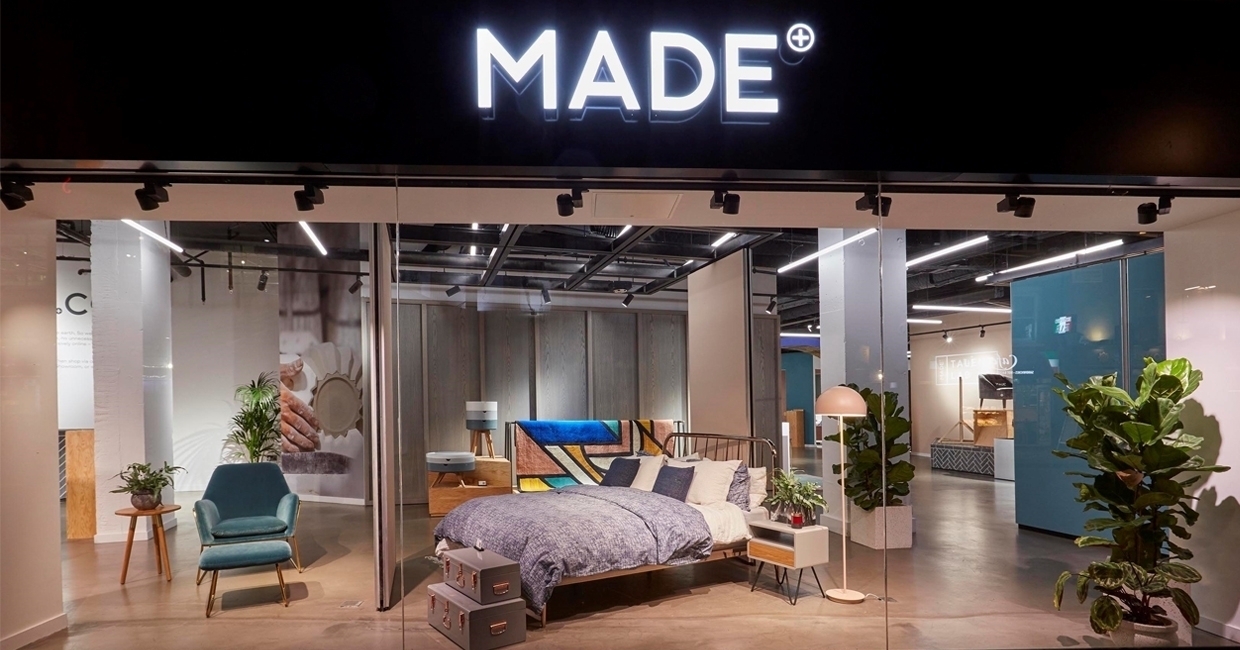Having signalled a potential capital raise this summer to strengthen its balance sheet, Made.com has decided to conduct a formal review of the various strategic options available to it, to maximise value for shareholders.
Made says a combination of adverse global macroeconomic conditions – from a decline in discretionary consumer spend to destablised supply chains – combined with the events of the past two weeks in the UK, has led Made to withdraw its full-year guidance. It is now exploring various cost-saving options and the possibility of a group sale.
"Global macroeconomic conditions have radically changed over the 15 months since Made's IPO, creating two major headwinds for consumer businesses," states Made. "The first headwind is the decline in discretionary consumer spending stemming from increased inflation and a steep decline in consumer confidence. During the first half of 2022, Made's core markets have experienced adverse developments in macroeconomic conditions, including economic slowdowns, rising inflation of commodity and energy prices, spurred by Russia's invasion of Ukraine, which has caused greater uncertainties about the duration and further deterioration of these adverse conditions and other contributing factors. These adverse market conditions have caused a sharp decline in consumer confidence and contributed to a significant withdrawal of consumer discretionary spending.
"Further, these conditions contributed to an increased need to sell goods at a discount in order to address the inventory levels to adjust to the adverse market conditions, negatively impacting gross margin and causing negative operating leverage of fixed costs. Made's previous strategy to build up inventories and range availability to improve customer experience and conversion rates through shorter lead times coincided with this steep decline in consumer confidence and resulted in Made being in an overstocked position, with more cash tied up in working capital.
"The ongoing adverse market conditions have also made it challenging for the group to acquire new customers at financially attractive rates, resulting in higher customer acquisition costs.
"The second headwind has been the deglobalisation and destabilisation of supply chains resulting in reduced reliability and increased costs. Recent macroeconomic conditions and geopolitical events have impacted the global supply chains, leading to industry wide freight cost increases. Since November 2020, global freight disruptions resulting from, among other things, the Covid-19 pandemic, have resulted in market wide reduced freight capacity, delays in freight shipping and significantly higher freight costs.
"The group has been adversely affected by these events. In the second half of 2021, significant increases in market spot rates for freight contributed to a rise in freight costs from £8.2m in 2020 to £45.3m in 2021, which the group has not been able to fully pass on to its customers during a tightening consumer macroeconomic environment, resulting in depressed margins. This cost inflation in Made's supply chain has persisted throughout the first half of 2022 as a result of now structurally higher levels of freight rates and carrier costs. This is despite the recent decline in freight rates, of which the group has not yet been able to realise the benefit. In addition, last-mile-delivery costs and additional significant fuel surcharges from carriers, caused by the resulting impact of the Russian invasion of Ukraine on global fossil fuel prices, have contributed to the increased fulfilment costs which has depressed margins."
Made says it has taken several steps to manage its cost base and cash flow this year, including "significantly reducing the level of forward purchases of inventories, reducing capital expenditures, implementing a hiring freeze, removing planned spend from brand marketing activity, and laying the foundations for opening European sourcing and a new marketplace non-stocked operating model.
"In order to extend the group's cash runway further, the board has concluded that costs must be reduced further and a process has commenced to implement additional cost reductions, including a strategic headcount review, within the next few weeks, whilst retaining appropriate skills and resources to be able to conduct the strategic review process effectively.
"As previously announced, the board has been considering ways to strengthen the group's balance sheet, including a possible capital raising. In light of a number of factors including the continued uncertain trading conditions, the board has concluded that the prevailing conditions are not supportive at the current time of raising sufficient equity from public market investors.
"As a result, the board has decided to undertake a strategic review, which will involve a broad range of options to either facilitate raising additional funding, for example through debt financing, through a strategic investment by a business partner or other market participant, by realising value from a sale of the group - or its business and assets - or through a business combination with another entity with sufficient funding for the combined group."
PwC has been appointed as Made's financial adviser with regards to the strategic review and formal sale process.
"While the group has had a number of strategic discussions with interested parties, the group is not in receipt of any approaches, nor in discussions with any potential offeror, at the time of this announcement," Made continues. "As described above, the board emphasises that a sale of the group is only one of a number of strategic options to be considered under the strategic review. Another option under consideration is to seek a strategic investment in the group."








